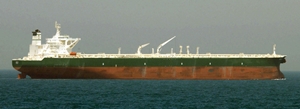Oil zooms above $50 a barrel on hopes of output deal
30 Nov 2016
Crude oil prices gained as much as 8.8 per cent today on hopes of an agreement between Opec and non-Opec oil producers to keep oil production under check so as to absorb the market surplus and clear the glut that is pressing oil prices downward.
Benchmark North Sea Brent crude rose above the $50 a barrel mark for the first time since 28 October amidst reports that the oil cartel was nearer to finalising an agreement to cut supply and stabilise global markets.
Brent futures on the London market jumped as much as 8.8 per cent today, in the wake of reports that oil producers are very close to a deal that would remove 1.4 million barrels of oil a day from the market.
An agreement at a ministerial meeting underway in Vienna, is expected to include an additional 600,000 barrels a day of cuts from non-OPEC suppliers, the delegate said.
Russia, the biggest producer outside the bloc, is reported to have agreed to lower production if Opec agrees to individual country quotas rather than fix a combined quota that its members often disregard.
Ministers from member countries of the Opec are meeting in the Austrian capital to review a proposal floated in September to collectively reduce output.
With low oil prices weighing on the budgets of oil producing countries – both Opec and non-Opec – producers are now seeing common ground for a deal.
United Arab Emirates energy Minister Suhail Al Mazrouei said he expects ''some good news'' later in the day.
While there seems to be broad consensus among the 14 Opec members that a deal to collectively freeze or cut output is necessary, an agreement is being held up by political issues and disputes over country quotas.
Without a deal, analysts said, the oil market would remain ''significantly oversupplied'' and oil price is likely to plunge back towards the $40 per barrel mark.
Some analysts expect a no-deal to push oil prices down to levels around $25 a barrel.
The Russian rouble jumped 1.7 per cent against to the dollar. The greenback was buying 64.035 rubles, compared with 65.110 late on Tuesday in New York.
Russia is said to consider cutting production beyond the expected Opec output agreement. The cartel has proposed that non-Opec members should reduce production by a total of 600,000 million barrels a day, with 400,000 of those coming from Russia.
However, an energy source from the country called that number ''a bit excessive''.
However, an Opec deal seems more unlikely with Saudi Arabia demanding that Iran and Iraq participate in the cutback scheme, while Iran is demanding that Saudi Arabia undertake virtually all the targeted reduction alone.
"Those who profited the most from Libya, Nigeria and Iran's oil being out of the market should play the most in stabilizing the market, not to expect others to."
Saudi Arabia's oil output has surged to nearly 10.5 million barrels per day (bpd). The rise, initiated earlier this year, was meant to satisfy a seasonal rise in internal demand over the summer, while maintaining global market share. (Saudi Arabia uses unrefined, crude oil as a feedstock for electrical generation units, which are fired-up to meet demand from heavy air-conditioning use.)
In the past, Saudi Arabia reduced output levels once the summer demand ebbed, but not this year. Instead, they have maintained production and ramped up exports, taking the battle for market share with Iran and others to new heights.
In a recent meeting with Iranian officials, the Saudis supposedly threatened to unleash even more production and exports, if there was no Opec deal.



















